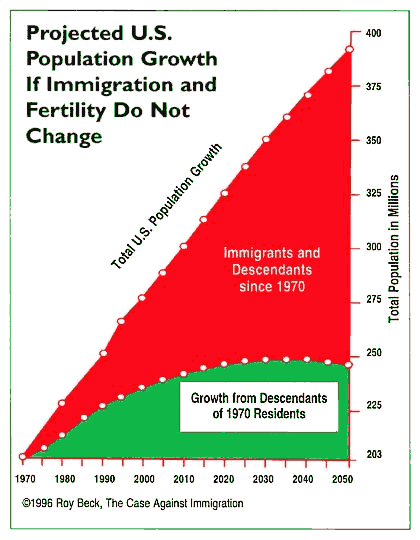[h=1]10 Charts That New College Graduates Are Going To Hate[/h]
Congratulations, Class of 2014!
Unfortunately, you are graduating into one of the hardest moments ever for young workers. Here's a rundown of where you are and of some of the challenges ahead of you.
[h=2]First of all, you just paid more for your degree than anyone other class in history.[/h] College has been getting more expensive. Here's a chart, based on data from the College Board, showing how tuition and fees, in inflation-adjusted 2013 dollars, have dramatically increased over the last decade:
 Business Insider/Andy Kiersz, data from The College Board
Business Insider/Andy Kiersz, data from The College Board
For the 2003-04 academic year, these costs were $5,900 for a year, and in the 2013-14 year, they were $8,893. This represents about a 51% total increase over that decade, or an average annual real growth rate of about 4.2%.
[h=2]This means you have massive student debt.[/h] As a result of rising tuition, student loans have been growing dramatically as well, as can be seen in this chart from a 2013 New York Federal Reserve presentation on student debt:
 New York Fed
New York Fed
Many young adults have trouble paying back this debt.
[h=2]And because of all this debt, student loan delinquencies are on the rise.[/h]
 FRBNY Consumer Credit Panel/Equifax
FRBNY Consumer Credit Panel/Equifax
[h=2]All this debt is going to hurt your credit score.[/h] In recent years, 25- and 30-year-olds with no student debt have had much higher credit scores than their peers who do have debt, as this chart from the New York Fed's Liberty Street Economics blog shows:
 New York Fed
New York Fed
[h=2]Oh, and the job market is still ugly.[/h] How are college graduates doing in the job market? A recent study by the liberal think tank Economic Policy Institute takes a look at labor market conditions for young people and recent college graduates.
Disregarding education levels, young workers have historically had higher unemployment than workers as a whole, regardless of the overall state of the economy. That means that the overall weak labor market of recent years has hit young adults especially hard:
 Economic Policy Institute
Economic Policy Institute
Over the last 45 years, workers under 25 have had about double the unemployment rate of all workers.
The unemployment rate just captures people who are actively looking for work. It is also worth looking at discouraged or missing workers: people who want a job, but have given up looking because they believe there are no jobs out there for them.
[h=2]Since the 2007 recession, the number of young discouraged workers has exploded.[/h] This chart compares youth unemployment to unemployment with the discouraged workers added in:
 Economic Policy Institute
Economic Policy Institute
While young adult unemployment and the number of discouraged young workers have been improving, it's been a very slow process.
[h=2]And just because you have a degree, it doesn't mean you're going to have an easy time finding a job.[/h] While young college graduates have a lower unemployment rate than all young people, the labor market situation has gotten worse for them over the last few years:
 Economic Policy Institute
Economic Policy Institute
In addition to higher levels of unemployment than those seen in the past, young college grads face higher levels of underemployment, a measure combining unemployed workers, discouraged workers who have given up looking for work, and people who have part-time jobs but want full-time work and can't find it.
[h=2]And if you do get a job, the wages are terrible.[/h] Young workers who do get a job have seen stagnant wages in the 2000s, and a decline since the recession:
 Economic Policy Institute
Economic Policy Institute
[h=2]And your degree might have been a waste. A lot of grads are taking jobs that didn't require them to have that degree.[/h] College graduates who do find work are frequently taking jobs where they aren't using their degrees. The New York Federal Reserve published another study analyzing what kinds of jobs are taken by recent college graduates. They defined underemployment as having at least a bachelor's degree, but being in a job that may not require a four-year degree.
The authors of the study found that, while it's somewhat normal for recent graduates to take a few years to fully enter the job market, the rate of recent college graduates with non-degree-requiring jobs is higher in recent years than in the 1990 or 2000:
 New York Federal Reserve
New York Federal Reserve
[h=2]Bottom line: With lots of debt, and few good jobs, lots of graduates are just staying at home.[/h] As a result of all this labor market strife and uncertainty, young people are more likely to move back home in their early to mid 20s. We recently posted this chart from John Burns Real Estate Consulting showing the share of households with at least one child living at home in their late 20s or early 30s has risen in the aftermath of the recession:
 John Burns Real Estate Consulting
John Burns Real Estate Consulting
Congratulations, Class of 2014!
Unfortunately, you are graduating into one of the hardest moments ever for young workers. Here's a rundown of where you are and of some of the challenges ahead of you.
[h=2]First of all, you just paid more for your degree than anyone other class in history.[/h] College has been getting more expensive. Here's a chart, based on data from the College Board, showing how tuition and fees, in inflation-adjusted 2013 dollars, have dramatically increased over the last decade:

For the 2003-04 academic year, these costs were $5,900 for a year, and in the 2013-14 year, they were $8,893. This represents about a 51% total increase over that decade, or an average annual real growth rate of about 4.2%.
[h=2]This means you have massive student debt.[/h] As a result of rising tuition, student loans have been growing dramatically as well, as can be seen in this chart from a 2013 New York Federal Reserve presentation on student debt:

Many young adults have trouble paying back this debt.
[h=2]And because of all this debt, student loan delinquencies are on the rise.[/h]

[h=2]All this debt is going to hurt your credit score.[/h] In recent years, 25- and 30-year-olds with no student debt have had much higher credit scores than their peers who do have debt, as this chart from the New York Fed's Liberty Street Economics blog shows:

[h=2]Oh, and the job market is still ugly.[/h] How are college graduates doing in the job market? A recent study by the liberal think tank Economic Policy Institute takes a look at labor market conditions for young people and recent college graduates.
Disregarding education levels, young workers have historically had higher unemployment than workers as a whole, regardless of the overall state of the economy. That means that the overall weak labor market of recent years has hit young adults especially hard:

Over the last 45 years, workers under 25 have had about double the unemployment rate of all workers.
The unemployment rate just captures people who are actively looking for work. It is also worth looking at discouraged or missing workers: people who want a job, but have given up looking because they believe there are no jobs out there for them.
[h=2]Since the 2007 recession, the number of young discouraged workers has exploded.[/h] This chart compares youth unemployment to unemployment with the discouraged workers added in:

While young adult unemployment and the number of discouraged young workers have been improving, it's been a very slow process.
[h=2]And just because you have a degree, it doesn't mean you're going to have an easy time finding a job.[/h] While young college graduates have a lower unemployment rate than all young people, the labor market situation has gotten worse for them over the last few years:

In addition to higher levels of unemployment than those seen in the past, young college grads face higher levels of underemployment, a measure combining unemployed workers, discouraged workers who have given up looking for work, and people who have part-time jobs but want full-time work and can't find it.
[h=2]And if you do get a job, the wages are terrible.[/h] Young workers who do get a job have seen stagnant wages in the 2000s, and a decline since the recession:

[h=2]And your degree might have been a waste. A lot of grads are taking jobs that didn't require them to have that degree.[/h] College graduates who do find work are frequently taking jobs where they aren't using their degrees. The New York Federal Reserve published another study analyzing what kinds of jobs are taken by recent college graduates. They defined underemployment as having at least a bachelor's degree, but being in a job that may not require a four-year degree.
The authors of the study found that, while it's somewhat normal for recent graduates to take a few years to fully enter the job market, the rate of recent college graduates with non-degree-requiring jobs is higher in recent years than in the 1990 or 2000:

[h=2]Bottom line: With lots of debt, and few good jobs, lots of graduates are just staying at home.[/h] As a result of all this labor market strife and uncertainty, young people are more likely to move back home in their early to mid 20s. We recently posted this chart from John Burns Real Estate Consulting showing the share of households with at least one child living at home in their late 20s or early 30s has risen in the aftermath of the recession:






